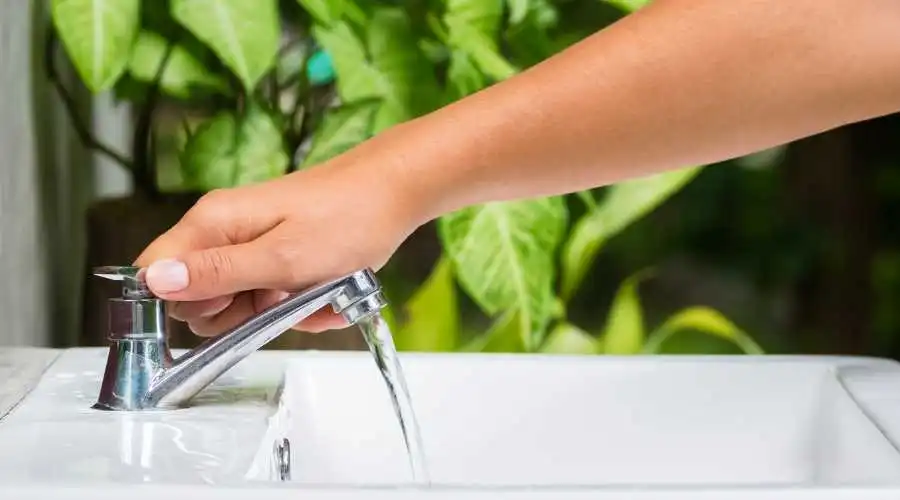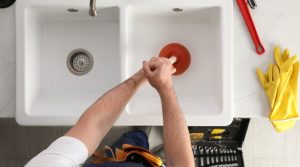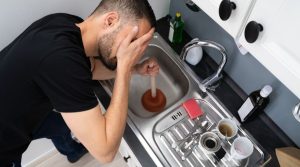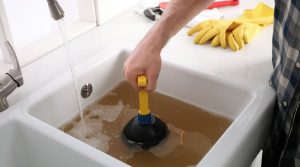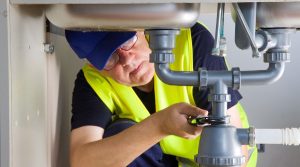New Jerseyans all understand all too well how terrible and dangerous water scarcity can be. We’ve learned over the last few years that water comes and goes easily. In actuality, the lack of water is increasingly becoming a severe issue across the nation. Over the course of the next ten years, 40 states should prepare for serious water shortages, according to the Environmental Protection Agency.
Water conservation at home benefits the state of New Jersey as well as your power bill. Here are 10 surprisingly simple strategies to reduce water use in your home. Knowing that you are saving money and water for your state will make you feel good.
1. Spend money on WaterSense items.
When items that use water meet a number of crucial water-conserving criteria, the EPA honors them with the WaterSense label. WaterSense showerheads, faucets, and toilets:
- are at least as effective as their less water-efficient equivalents.
- are at least 20% more effective than typical products of the same category
- Meet the National EPA water conservation guidelines
- will result in quantifiable water savings for the homeowner
- utilize a variety of technology alternatives to increase their water efficiency
Almost all fixtures and appliances that use water are eligible for the WaterSense designation, according to the EPA. One of the greatest and simplest ways to save water in your house is to switch to WaterSense fixtures.
2. When not in use, turn off the faucet.
Are you brushing your teeth? Are you washing your hands? When not in use, turn off the water faucet. If you need it again, you can always switch it back on for a brief period of time. You’d be astonished at how much water it saves, even if this alteration may seem insignificant (and it is!).
3. Detect leaks immediately and correct them.
No matter how small they appear to be, hidden or neglected leaks lose a significant quantity of water annually. As soon as you see leaky faucets, sloppy joints, or hairline pipe cracks, fix them. You’ll safeguard your plumbing by fixing leaks in addition to saving water.
4. Have shorter showers.
Up to five gallons of water per minute can be used by a typical (non-WaterSense) showerhead! Therefore, you might save up to ten gallons each day if you reduced the length of your shower by just two minutes. Given that the typical American drinks 80–100 gallons each day, that easily cuts 10% off of your usage. You may save a lot of time, water, and money by taking purposeful showers. Installing a water-saving shower head may also be helpful in this situation.
5. Wait until your dishwasher and washing machine are fully stocked before using them.
Although it may be tempting, it is wasteful to just wash your favorite garment or run the dishwasher after every meal. Never use your dishwasher or washing machine before you can complete a full load.
You may conserve water by using these two gadgets rarely and on purpose. However, utilizing machines is still more effective than doing the laundry by hand.
6. Think about adding a rain barrel.
For houses with lots of plants to take care of, rainwater collecting is ideal. Use the water you collect to irrigate your garden and lawn as well as indoor and outdoor plants. Rain barrels are inexpensive, simple to maintain, and can help you save a surprisingly large amount of water. The more naturally occurring water you can reuse, the less you’ll need to utilize tap water.
7. Make use of less electricity.
It may come as a surprise, but hydro-powered technology is used to cool power plants. By association, using less electricity translates into using less water. Make an effort to reduce unnecessary electrical use. When you leave a room, turn off any fans. Before retiring to bed, turn out the lights. Use daylight from natural sources to illuminate your house during the day. The more you can cut back, the more money you’ll save.
8. Store drinking water in the refrigerator.
Save yourself water going down the drain by keeping cool drinking water in your refrigerator rather than running the tap until the water is chilled. Both the satisfaction and the expense will increase.
9. When not in use, cover the pool.
Pool coverings prevent evaporation and maintain temperature. According to the Department of Energy, pool coverings can cut the amount of water that needs to be replaced by more than 50%. Your pool’s chemical use and re-heating expenses will both be decreased by covering it. It is simple, easy, and it saves a lot of water and money.
10. Avoid washing your car by yourself.
Did you realize that washing your car in your driveway might consume more than 100 gallons of water? Conversely, the majority of commercial vehicle washes employ recirculating systems that significantly improve their ability to conserve water. However, even commercial car washes frequently consume a lot of water. When you do wash your automobile, we advise taking it to a professional car wash.
Contribute to keeping New Jersey’s water reservoirs full
Did you know that you may check the water levels in our New Jerseyans reservoirs online? No matter how much or how little water we have on a daily basis, it is always a good idea to put some new water conservation techniques into action. Just a little diligence will do.
Do you still have questions about how to make your house more water-efficient? Do you require assistance with installing a new fixture or choosing the ideal WaterSense showerhead? CBJ Passaic Plumbers can assist you with any water-related problem you may be having at home. Call us right away if you have any queries or problems with plumbing.

